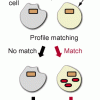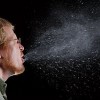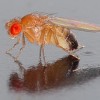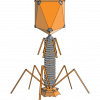Site Topics

Designer Biology in the Fight against Cancer
Nov 8th
As many of you know and I have discussed before, cancer therapies have to target cancer cells while minimizing damage to normal cells. This is very difficult, in part because cancer cells are, although altered, still human cells. Synthetic biology is a new field that engineers biological systems for different applications. One interesting area where synthetic biology is now being applied is to cancer therapies. One advantage is that it may be possible to engineer sensors that can differentiate normal cells from tumor cells.
Early approaches have used engineering to create bacteria that specifically invade tumor cells. In one approach, bacteria More >

The Medical Sleuth
Oct 31st
When we think of a detective the first thing that comes to mind is an investigator, either a member of a police agency or a private entity. However there are unique detectives within the multifaceted arena of medicine. All though we might already think of most doctors as detectives there are special doctors, units, working at the National Institute of Health’s (NIH) undiagnosed disease program. Doctors such as William A. Gahl at the NIH are disease detectives that try to elucidate the causes and genetic basis involved in the hundreds of unsolved and mysterious diseases that arise each year. Dr. Gahl More >

Autumn Leaves
Oct 28th
Autumn is my favorite season. I enjoy the cool weather, unpacking my sweaters from the attic and sleeping under my cozy comforter. But better than all of the above are the fantastic red, yellow and orange leaves that adorn the deciduous trees here in New York. Before I worked at the DNA Learning Center, this process was simply a beautiful rite of fall. Now, I see the whole process in a different light. It’s an elegant series of genetic steps that evolved millions of years ago, for a reason much bigger than beauty!
For most of the year, deciduous trees are More >

Origin of ALS discovered
Oct 24th
ALS (amyotrophic lateral schlerosis, a.k.a. Lou Gehrig’s disease) is a devastating disease which kills motor neurons, leaving patients paralyzed and unable to function. Although patients remain aware and for the most part mentally undamaged, most patients die within 2-3 of onset as the disease progressively leaves them trapped in a body that is unable to function. As motor neurons die, the person’s muscles weaken and atrophy, and patients will eventually develop respiratory difficulties leading to death.
Unfortunately very little is known about how this disease develops, so a new breakthrough published in Neuron (and by a second group also in Neuron) is More >

The Upside of Allergies
Oct 19th
Are you one of those unfortunate souls who suffers from allergies? Do you shudder at the thought of spring time, with all its budding flowers, new growth and pollen flying through the air? Can’t visit Aunty Annie’s house because of the cat dander? Have to ask the ingredients of every cookie for traces of nuts, eggs, or wheat?
Well you may actually be one of the lucky ones! Your immune system’s sensitivity may be protecting you from contracting brain cancer.
Researchers at the University of Illinois at Chicago asked over 1,000 hospital patients about their allergy histories. Astonishingly, patients who had high-grade More >
AIDS Cure UPDATE
Oct 15th
Back in February, I blogged about a patient who received a bone marrow transplant, from an HIV-immune donor, that cured both his leukemia and AIDS. I mentioned that while bone marrow transplants were impractical as a primary treatment for AIDS, I suggested that perhaps gene therapy tactics could be employed to achieve the same effect. For the first time, scientists at Sangamo BioSciences have shown that this may actually be possible.
HIV infects white blood cells by latching onto two protein receptors, CD4 and CCR5. Scientists noticed that people with a defect in the CCR5 gene (a 32-bp deletion) are incapable of More >

Model Organisms
Oct 12th
I asked a group of 5th graders the other day whether or not we can learn anything from studying other living things. For example, if we mutate or change the DNA of another organism, like fruit flies (D. melanogaster), can we learn anything about what can happen when human DNA changes? For this particular class, it seemed to be an absolutely absurd question. This could have been because the thought of fruit flies made them ill right before lunch, or they were unsure about how much we have in common with fruit flies.
So we got into a discussion about model More >

Viruses
Oct 11th
What do you think of when someone says virus? Most people would say infection, getting sick, germs, and other negative associations. Not only are viruses a valuable tool in research, they offer a look into history and also our own bodies. I’ve recently become a bit obsessed with learning more about them. Part of it is that I thought I knew more than I did. There is a huge amout of information just waiting to be uncovered. Too often we think we know something and it prevents us from learnng more. Even something simple like having the chicken pox…
I remember More >

